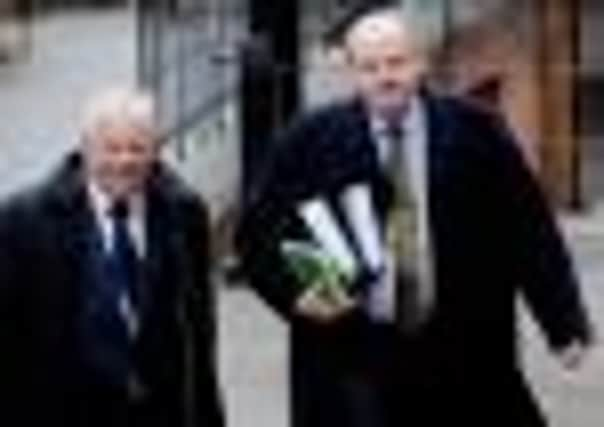Leveson Inquiry: BBC spent over £300,000 on private detectives


The news came as the investigation into media standards and phone hacking heard how the BBC had ran up a bill of £310,000 over a six year period through employing private detectives.
That figure included using one to find out the owner of a car from its number plate.
Advertisement
Hide AdAdvertisement
Hide AdGiving evidence, BBC Director General Mark Thompson said that they had employed investigators 232 times during that time, out which news accounted for 43 occasions, at a cost of £174,500, not including the use of private security teams.
The remain ing 189 were employed by BBC Vision, mainly for consumer programmes, costing approximately £133,000.
The inquiry heard there were two mentions of the BBC in the documents seized during the investigation by the Information Commissioner’s Office into Steven Whittamore’s activities known as Operation Motorman.
Wittamore received a two year conditional discharge after he pleaded guilty to charges relating to trading in illegally obtained information with the press.
In 2001, a current affairs journalist commissioned Whittamore to supply information about whether a paedophile was on a flight into Heathrow Airport.
The programme, which for other reasons was never broadcast, was looking at whether people with UK convictions for child sex offences could get jobs giving them access to children in other countries.
Mr Thompson said: “The request to try and find out whether this particular paedophile was on the aircraft, I would regard as being justified in the public interest.”
He added that the Motorman papers also included a reference to “BBC wine blag”, which appeared to be an attempt by a newspaper to discover the corporation’s spending on alcohol.
Advertisement
Hide AdAdvertisement
Hide AdWhittamore’s Hampshire home was raided by investigators from the Information Commissioner’s Office in March 2003. He was convicted of illegally accessing data in April 2005.
Mr Thompson said it was “quite desirable” that British newspapers were not as heavily regulated as broadcasters, which have a broader and more immediate reach.
“I think that this country in the end has benefited from having a range of media which are funded differently, constituted differently and have different objectives,” he said.
He echoed comments to the inquiry last week by Times editor James Harding, who voiced fears that any new law underpinning press regulation could easily be made stronger by politicians at a later date to suppress newspapers.
Mr Thompson said: “Historically the BBC has argued against a statutory foundation, preferring instead the idea of royal charters given over ten-year periods, precisely to stop the risk of political change to its constitution in mid-flight.”
Inquiry chairman Lord Justice Leveson observed: “The fact is that if that situation arose, there would be nothing to stop Parliament passing an Act tomorrow anyway.”
The BBC Director General said there was a danger that the phone-hacking scandal gave the impression that all tabloid newspaper journalism was “bad or dishonest”.
“That simply isn’t the case, and I think that trying to keep objectivity about the range of journalism and about the quality of much of our newspaper journalism is an important part of the story as well,” he said.
Advertisement
Hide AdAdvertisement
Hide AdMr Thompson said BBC Radio 2’s broadcast of Jonathan Ross and Russell Brand’s lewd answering machine messages for Fawlty Towers actor Andrew Sachs was “a very serious lapse of editorial judgment”.
The corporation added rules relating to intimidation and humiliation to its guidelines after the episode in 2008, the inquiry heard.
The Director General said “the probity, the integrity and the conviction” of BBC journalists was “not to be questioned”.
“There are a lot of journalists in the organisation who could teach me a thing or two about journalistic standards,” he said.
The BBC receives about 240,000 complaints a year, a typical one being that a viewer’s programme was rescheduled because a sports match over-ran, the hearing was told.
Mr Thompson said he did not think the corporation had lost a defamation action in court for a decade, although it settles up to six cases a year outside court.
The Director General was asked about the BBC’s decision to broadcast a Panorama documentary about alleged Fifa corruption despite calls to postpone it until after the decision was made about England’s 2018 World Cup bid.
He said: “My response was we were right to pursue the investigation and I thought it would be wrong to adjust the scheduling or the character of the programme in any way.
“I wanted to stand behind Panorama’s absolute right to do that investigation and to broadcast it as scheduled - which is what we did.”